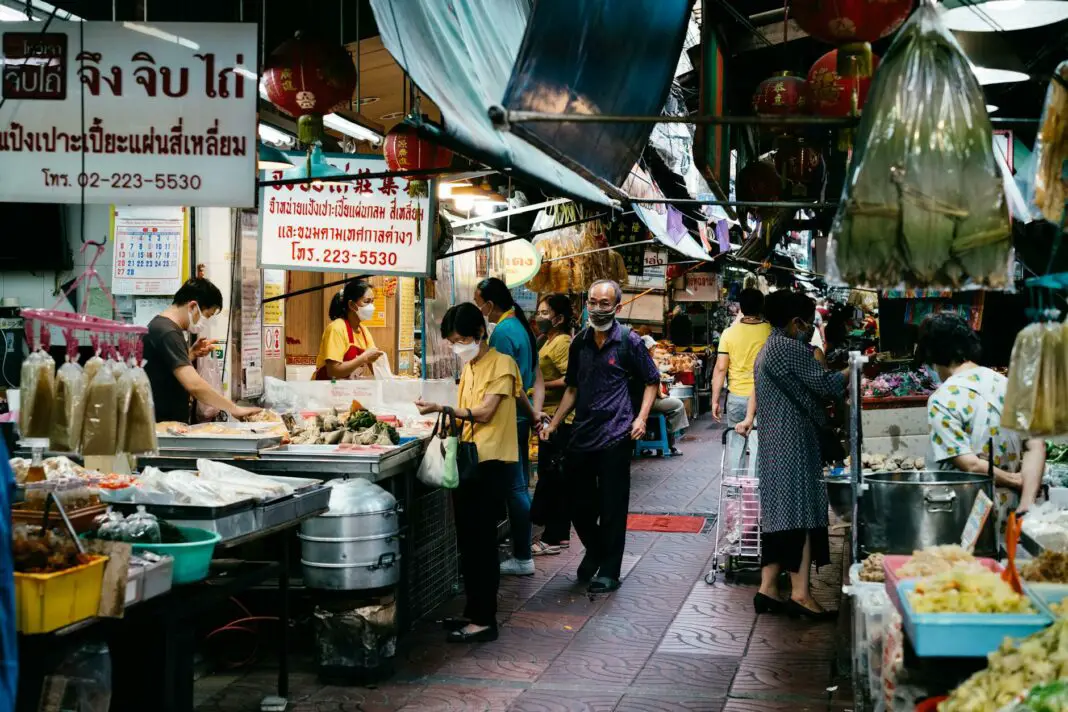Embarking on a trip to Thailand is more than just a vacation; it’s an indulgence in culture, adventure, and exotic flavors. Thailand’s bustling markets are a true reflection of the country’s vibrant spirit, offering a plethora of products ranging from hand-crafted souvenirs to delicious street food. However, engaging in the art of bargaining can elevate your market experience, turning a simple shopping venture into a thrilling and budget-friendly endeavor. In this blog post, discover the secret bargaining tricks that will transform your shopping experience in Thailand’s markets, allowing you to enjoy significant savings while immersing yourself in local culture.
Unravel the tactics that seasoned travelers swear by as you learn how to confidently navigate stalls filled with colorful handicrafts and bargain for the best prices. Not only does bargaining save you money, but it also enhances your connection with the local vendors, leading to a richer understanding of Thai culture. From the bustling streets of Bangkok to the serene markets of Chiang Mai, this guide will equip you with invaluable tips to help you thrive in Thailand’s dynamic shopping landscape.
Thailand is synonymous with vibrant markets that buzz with life and energy. Each market is unique, catering to the diverse tastes and preferences of locals and tourists alike. From the famed Chatuchak Weekend Market in Bangkok, boasting over 15,000 stalls, to the charming night markets in Chiang Mai, every venue offers a myriad of products— from the traditional to the contemporary. The bustling atmosphere, combined with the aroma of street food and the sight of colorful goods, creates an irresistible charm that pulls you in. Understanding the types of markets available can guide you in choosing where to shop, whether it’s for clothing, handicrafts, or tantalizing food. Remember, exploring these markets is an adventure, often leading to unexpected finds and delightful interactions.
Bargaining is not merely a way to lower prices; it is an integral part of Thai culture that reflects the local lifestyle and values. Always anticipated at markets, haggling encourages a lively exchange between vendors and customers. Understanding the importance of bargaining adds depth to your cultural experience— you’ll gain insights into the vendor’s craft while actively participating in the local tradition. Additionally, vendors often inflate their initial prices with the expectation that customers will negotiate; this means you might be overpaying if you skip the bargaining. Mastering the negotiation process allows you to engage more with the local community, showcasing your willingness to embrace their customs and practices, thus enhancing the authenticity of your trip.
To successfully navigate bargaining in Thailand’s markets, several strategies can significantly improve your outcomes. First, always research the typical prices before your trip, equipping yourself with informational leverage when negotiating. This knowledge places you in a powerful position as a buyer. Next, practice your smile. A friendly demeanor will go a long way in fostering rapport with vendors. They are more likely to respond positively to a warm and genuine interaction. Don’t be afraid to walk away if a deal does not meet your expectations— this approach often prompts vendors to reconsider their prices in hopes of closing the sale. Also, starting your offer at about half of the asking price is a common practice that opens a productive negotiation flow. Remember, the goal is to find a mutually beneficial outcome, so be prepared to compromise while still standing firm on your budget.
Diving deeper into the cultural nuances of bargaining reveals much about Thai society. While haggling is encouraged, it is crucial to maintain respect and politeness throughout the process. Avoid aggressive or confrontational behavior, as this can be seen as offensive. Instead, keep your tone friendly and light-hearted. Engaging in small talk about local culture or even joking about the prices can diminish the tension and allow the sale to feel more playful. Moreover, showing appreciation for the craftsmanship behind the products can lead to a more favorable bargaining experience. Expressing genuine interest in the items fosters a connection and often results in better deals for both parties involved. After all, building a rapport not only enriches your interaction but symbolizes the shared respect fundamental in Thai culture.
Amidst the charm of vibrant marketplaces, it’s essential to remain vigilant about counterfeits and commercial traps. Some vendors may set up stall-style operations that create an illusion of authenticity but fail to deliver quality products. Always be cautious and conduct some groundwork before purchasing items. If a deal appears too good to be true, it often is. Prioritize established markets known for their artisan goods and avoid unfamiliar stalls that only focus on profit rather than craftsmanship. For instance, many tourist-heavy areas feature counterfeit goods that lack the allure of authentic Thai craftsmanship. By honing your ability to distinguish between these markets, you enhance your shopping experience while supporting local artisans who contribute to the rich tradition of Thai craftsmanship.
Your trip to Thailand’s markets has the potential to be a transformative experience, rich with memories, connections, and treasures. Embracing the art of bargaining not only makes your shopping more economical but also enhances your cultural exploration. As you merge your newfound insights and techniques with the vibrant local spirit, the memories you create will resonate long after your journey concludes. Remember, every transaction is an opportunity to engage with the culture— so cherish these moments. Immerse yourself fully in this adventure by being open to learning and adapting your approach as needed. Whether you’re a seasoned traveler or a first-timer, the experience of shopping in Thailand’s markets, complete with its exhilarating art of bargaining, will undoubtedly leave you with lasting impressions.
What is the best time to visit Thailand’s markets?
The optimal time for visiting markets in Thailand varies. While some markets operate day and night, the weekend markets like Chatuchak offer a vibrant experience on Saturdays and Sundays. Evenings are particularly lively in night markets, featuring local food stalls and entertainment. Consequently, the choice largely depends on the ambiance you seek.
How much can I save by bargaining?
Potential savings while bargaining can be substantial, ranging anywhere from 20% to 50% depending on various factors. Skillful negotiation, understanding market prices, and establishing rapport with vendors can lead to significant discounts, making every shopping venture an exciting experience.
Are all products in Thai markets negotiable?
While many products in Thai markets are open to negotiation, certain items such as fixed-price goods and larger retail stores may have limited flexibility in pricing. Always ask nicely and gauge the vendor’s willingness; you’ll likely find that handmade products usually encourage bargaining.
How can I ensure I’m getting a good price?
Researching typical prices prior to your trip can provide a solid foundation for negotiations. Also, talking to fellow travelers or locals can give you additional insights into standard pricing for various items, helping you feel more confident in your bargaining.
Image Credit: Pexels





